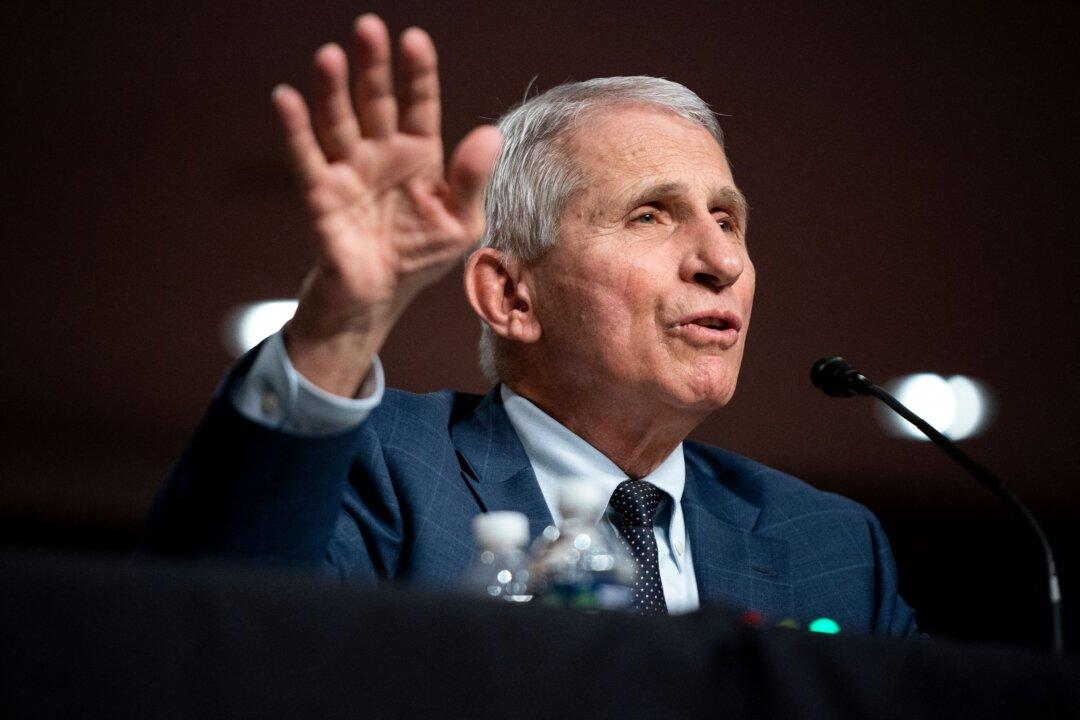Dr. Anthony Fauci and other top health officials said this week that virtually all Americans will get COVID-19 from the Omicron virus variant, a shift in outlook from earlier in the pandemic.
“I think in many respects, Omicron, with its extraordinary, unprecedented degree of efficiency of transmissibility, will ultimately find just about everybody,” Fauci, President Joe Biden’s chief medical adviser, said during a talk held by the Center for Strategic & International Studies on Tuesday.





